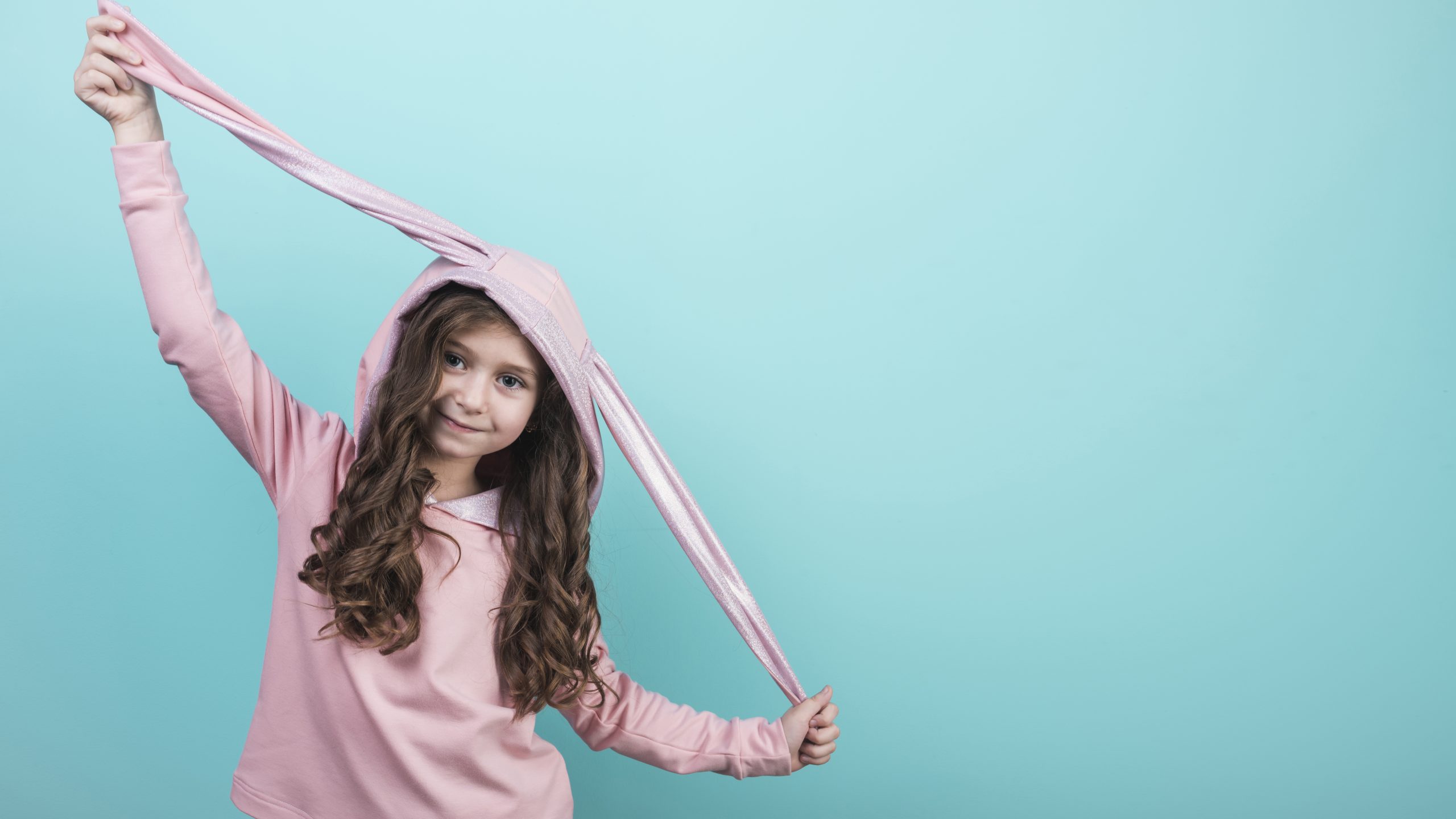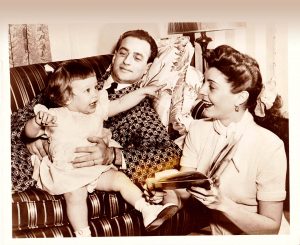
Basket Case
Beware of Easter bunnies – and babies – bearing gifts
By Jane Borden
In spite of enjoying idyllic Easter traditions in my youth — picking flowers from our yard for the wire-mesh cross at First Presbyterian Church, hunting for marshmallow candies inside tulip blooms in my great aunt’s storybook garden — my strongest memory of the holiday is the time I dressed as the Easter Bunny to work a party for 3-year-olds.
It was a sweet gig. At 13, I was a regular babysitter for a couple of the children invited, so my audience members were already my fans. Plus, there’d be candy. My parents dropped me on the other side of Dogwood Park, where I climbed inside a polyester, adult-sized rabbit, and attached the bug-eyed helmet. Then I sauntered into the mêlée, basket of candy in hand, adopting my best congenial walk. Just your average steroidal Lepus, looking for fun and eager to hug. Everybody get psyched.
The first child who saw me started to cry immediately. Within seconds, they were all screaming, abandoning their hunts to help spread the warning to neighboring villages: A monster conjured from the unknown had come to wave its hairy paws at them and dance a jig. “Regard its tapping foot! Its unnatural cotton tail!! Why does the beast present its behind?! Only heaven can save us now.”
Thirty seconds after affixing the costume’s head, I removed it. Then, commenced a new terror. “The monster is my babysitter! The monster is my babysitter? Clearly, I have never noticed my babysitter’s behind!!”
Every moment in early childhood, because we are born clean slates, is unfamiliar and incomprehensible. Reality is sudden, overwhelming, occasionally horrifying and confounding to pick apart. Then enters a creature breaking the rules their brains have so struggled to grasp. It resembles a stuffed toy but possesses free will. It has dead eyes, but sees. It was not invited.
Still, heartbreakingly, the children were torn. Though wailing, they did not run — because this half-beast babysitting specter bore sweets. Candy is the closest thing toddlers have to religion. Like grace, it is perfect, rare and delivered by gods. Was this polyester monster the deity their parents addressed before meals? Certainly, each meal ended with sweets.
In the end, though, the basket of treats could not calm. They dropped even the candies they’d already collected, and with good logic. What if the foil wrapped chocolate rabbits in their hands began to speak and dance as well? They could suffer no more unexplained wagging behinds.
But slowly the children understood and accepted that they were safe, and that I was still me but in strange clothes. We exchanged belated hugs. I babysat often. Usually, this involved feeding kids boxed macaroni and cheese, playing games, and putting them to sleep not long after I had arrived. Afterward, there were hours to kill. So you could say I was babysitting or you could say I was eating cheese. Every fridge contained the string variety, and usually Kraft slices too. I also ate the leftover mac and cheese, as well as small portions of pretty much everything in the refrigerator and pantry. As long as there was enough for my portion to go unnoticed, I partook. It was the prepubescent equivalent of swiping a bit of liquor out of each bottle of your parents’ cabinet. But I also did the dishes, always, in a desperate ploy to stay employed. I tidied toys and wiped counters. Then I watched television until the adults returned to drive me home. My mom instructed that I never count wages upon receiving them, so I stuffed the wads and checks in my pocket, pulling them out as soon I crossed my parents’ threshold. Sixteen dollars, fist-pump to the sky! And that was a raise. When I started at 12, I charged $2.50 an hour. I had taken a babysitting class at Cone Hospital, so I deserved every penny.
Babies watching babies. The kids liked me be cause I was one of them. When I texted Nancy May — who co-organized that egg hunt — to ask what she remembered about the day, she said, “I also got a lot of special grown-up candy for you. But your mom told me afterwards that you were disappointed not to get the same kind the kids had on the hunt, so I brought some of that over to your house later.”
At some point, presumably during my twelve years in New York, I forgot how to be with children. This, in spite of a diet still filled with children’s candy. Now, I’m relearning. The reality of having my own is not at all the way I had imagined it would be. You think it’ll be hard. Or, at least, people tell me that a lot — “It must be hard.” They say it because they can’t imagine, don’t know what to expect. But parenthood isn’t hard, per se. It’s just a new reality. And there is definitely a long transition into understanding how this reality works. The transition itself is difficult, absolutely. But the reality? I can’t say if it’s hard or easy. It just is.
So, parents out there, take a moment to imagine a scenario. You have just had your first child and are in the middle of that harrowing transition, still coming to grips with what the phrase constant care actually means. You are leaning over a crib at 3 a.m., wiping poop off its railings, struggling with a squirming and crying infant, when out of nowhere, an elephant-sized baby saunters into the nursery, waving its big-baby hands and doing a little jig. What would you do? Even if it came bearing an oversized basket full of what, at the moment, are your favorite things – wine, a hot meal, sleep – it’s a basket full of sleep. I don’t care how much you want it, you scream.
You can find Greensboro native Jane Borden, author of I Totally Meant To Do That, in L.A. now — or at JaneBorden.com or via twitter.com/JaneBorden.





